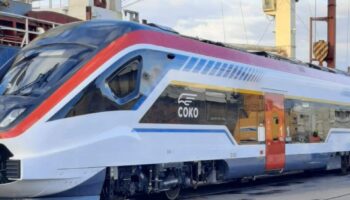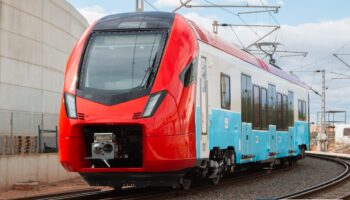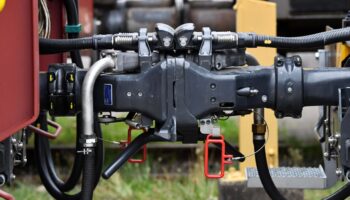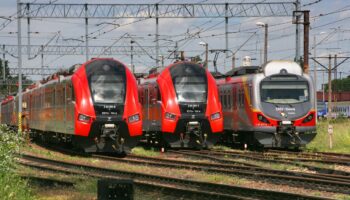Bulgaria: The country’s Ministry of Transport and Communications will change some specifications and qualification criteria following the cancellation of three of the four tenders announced in May, which attracted virtually no interest from global manufacturers.
The four tenders, worth a total of BGN 2.8 bln (€1.43 bln) excluding VAT, covered the supply of 35 single-deck and 7 double-deck EMUs, 20 push-pull trains, and 18 shunting locomotives. Co-financing was expected to come from the EU under the National Recovery and Resilience Plan for Bulgaria.
Consultations with manufacturers were held in 2022, and, according to the ministry, 32 companies submitted their proposals. However, Alstom, Siemens Mobility, Hyundai Rotem, Hitachi Rail, and several other companies later declined to participate. The local online media Mediapool quoted railway industry experts as saying that the lack of interest was mainly due to the extremely detailed technical specifications for the rolling stock.
For example, the documentation for the supply of 35 single-deck EMUs for BGN 1.1 bln (€560 mln) excluding VAT even specifies the distance between seats and the availability of space for bicycles and prams. As a result, the procurement was suspended after Skoda Group appealed to the country’s Commission on Protection of Competition. A relaunch of the tender with updated technical documentation is planned for early 2024.
The tender for the supply of seven double-decker EMUs for BGN 410 mln (€210 mln) VAT excluded was also suspended after an appeal by Stadler. The company believes that the ministry did not fully answer its questions, thus preventing its participation. The Commission on Protection of Competition rejected the appeal as unfounded. The tender will be relaunched once all legal procedures are completed.
The tender for the supply of 20 push-pull trains was also cancelled because the bids of two companies did not comply with the tender conditions. Talgo reportedly offered the supply for BGN 1.2 bln (€622 mln), which is BGN 17 mln (€8.7 mln) higher than the starting price, while CRRC halved the price to BGN 607 mln (€310 mln). All prices are exclusive of VAT. The Bulgarian transport minister Georgi Gvozdeikov told Mediapool that the ministry planned to hold direct negotiations with both bidders to improve the bids.
Only one tender was awarded, but not in full. The purchase, worth BGN 68 mln (€35 mln) VAT excluded, was divided into two lots: nine battery locomotives and nine electric-battery locomotives for operation in partially electrified depots. Both lots include delivery, maintenance for 15 years, and personnel training. The bid of BGN 10.6 mln (€5.4 mln) excluding VAT for the first lot was submitted by a local company, Express Service, and was 1.5 times lower than the starting price. The bids were found to comply with all the requirements, and the parties are preparing to sign a contract.
The second lot also received only one bid, worth BGN 60.7 mln (€31 mln) VAT excluded, from the consortium 9 Шънтър (9 Shunter) of CRRC and Vossloh Rolling Stock, a subsidiary of CRRC since 2020. The bid was rejected as non-compliant with the requirements and exceeding the maximum starting price by BGN 9 mln (€4.6 mln). A new tender with updated terms will be announced in early 2024.
However, despite fears in the Bulgarian media that the country risks missing out on EU funding and new rolling stock if the tenders are further delayed, Georgi Gvozdeikov says there is no such risk at the moment.















